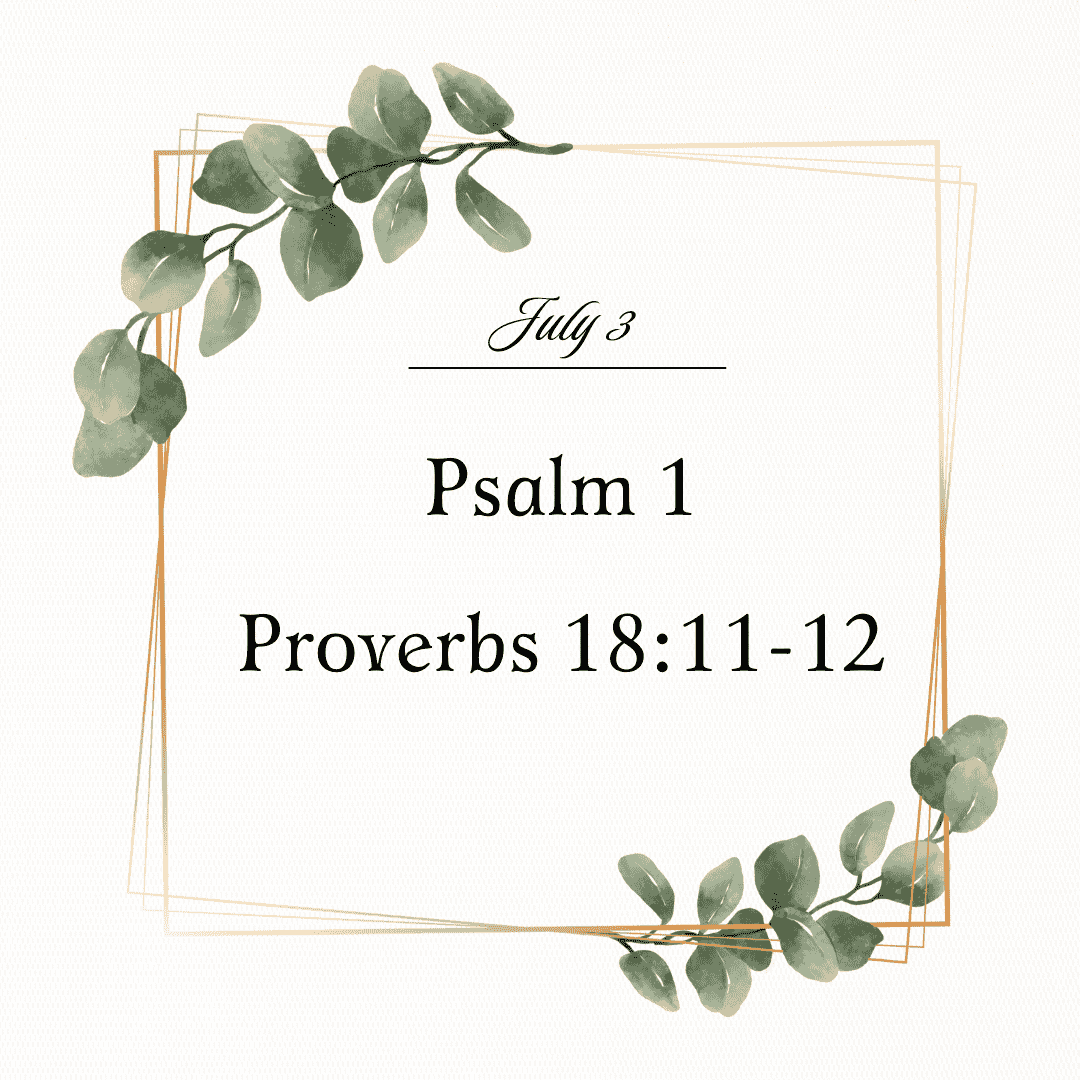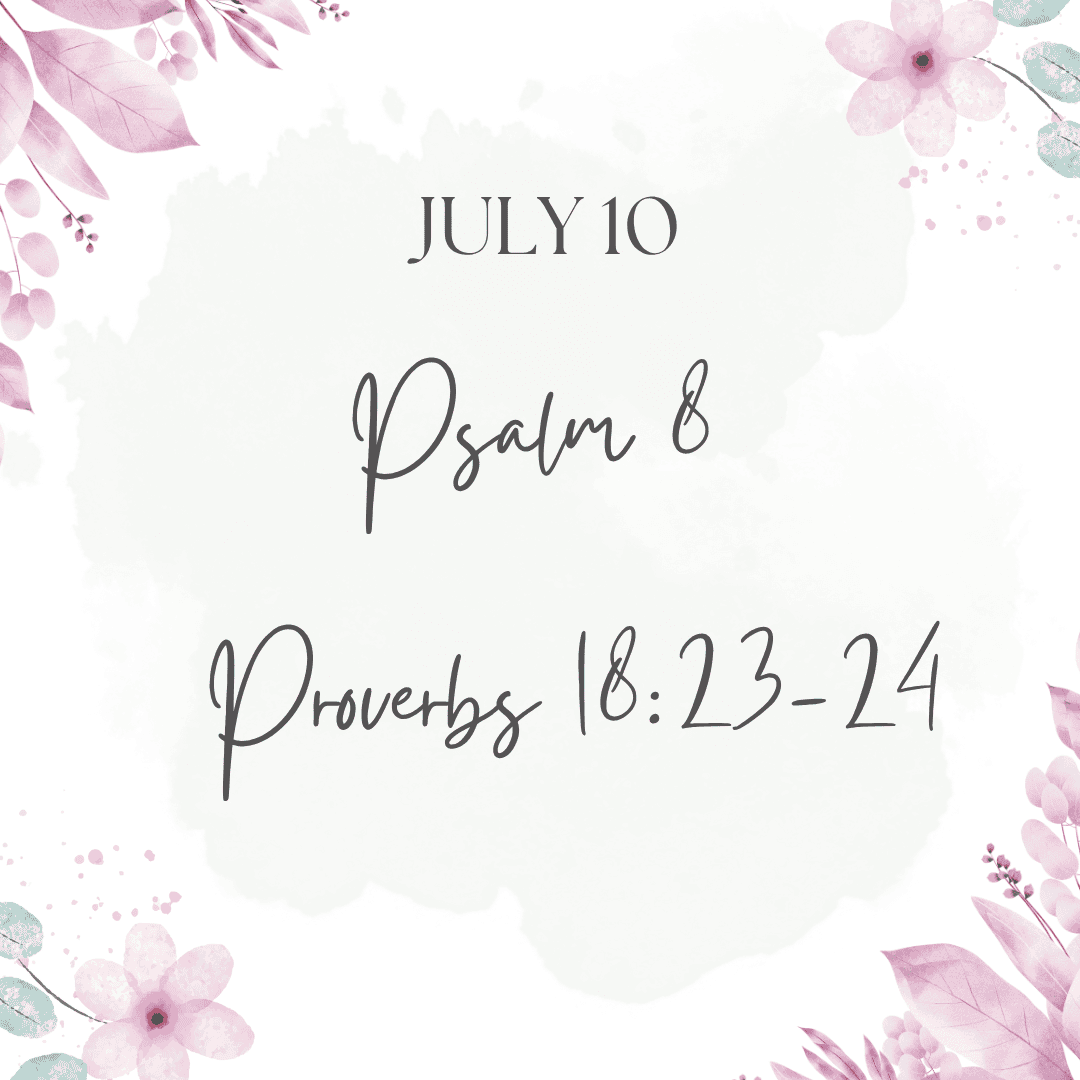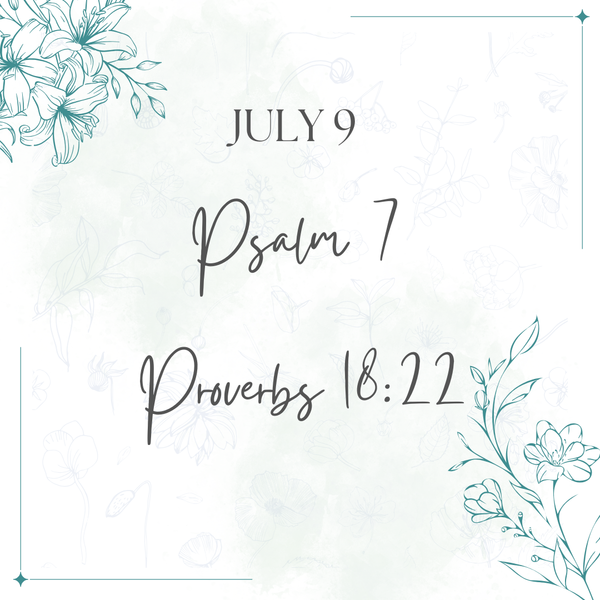July 3 Psalm 1; Proverbs 18:11-12

- What are the specific actions and attitudes that distinguish the “blessed” person in Psalm 1:1?
- Psalm 1:2 says the righteous delight in the law of the Lord and meditate on it day and night—what does this say about how God's Word can become a source of our strength and mental stability?
- Imagine a beautiful lush green tree besides a river bank, what do you think make it so lush and beautiful? According to Psalm 1:3, what are similarities between that tree and a righteous man? How can we grow resilience and fruitfulness in our lives?
- A godly man/woman finds his satisfaction not in worldly pleasure but in God's law—if we feel dry or discouraged, have we thought about why? Where's our source of joy?
- How do the wicked in Psalm 1:4 compare to “worthless chaff”? How can this image serve as a warning about where we place our hope?
- Psalm 1:6 says, “The Lord watches over the path of the godly.” Do you feel God watches over your path? Why or why not? How can we live in God’s protective oversight?
- In Proverbs 18:11, how is the rich man’s wealth described as a “strong fortress” and a “high wall”—what illusions of security do we sometimes rely on, and how does this affect our emotional state?
- Proverbs 18:12 contrasts pride that leads to destruction with humility that precedes honor—how can choosing humility during emotional low points be a step toward healing and restoration?
- Reflecting on both passages, how does walking in righteousness, rather than pride or self-reliance, prepare our hearts to receive God’s renewing grace?
- Psalm 1 shows a clear distinction between two paths—how might recognizing which “path” we’re on help us realign our affections and habits toward God’s blessing and peace?
May the meditation of His Word bring you constant joy and strength!
(*These questions can be used for family worship discussion, or Bible study group, or your own meditation.)



